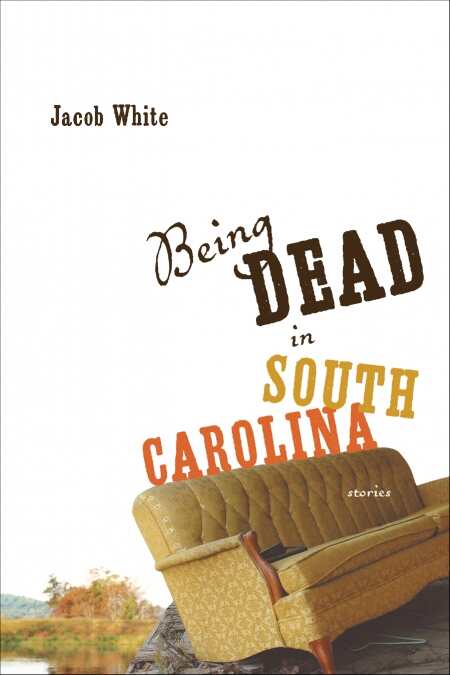Being Dead in South Carolina
Bewilderment, frustration, and despair keep the men in these stories on edge with only brief moments of hope to move them forward.
Male protagonists in crisis comprise the majority of heartrending short stories in Jacob White’s debut collection. Men find themselves “demoted” from their lives, fathers are estranged from their sons, sons exist at the mercy of their fathers, and husbands are abandoned by their wives. Their predicaments are grave—and in prose that is unadorned yet fiercely affective, White conveys a true and solemn poignancy.
Most of the seventeen stories are set in White’s native South Carolina. Landscapes of pine, myrtle, and kudzu situate readers, while White’s dialogue echoes a Southern drawl: “You and yours grab y’all a beer out that bag. We Christian,” says a character from “San Sebastian,” an uproarious tale about several ne’er-do-wells whose get-rich-quick scheme is to pour motor oil into a hole and convince speculators that it’s a “natural [oil] rupture.”
The title story features Dayton, a gunshot victim who’s stymied by memory loss and his family’s desertion. Apathetically, Dayton visits childhood friends to “re-associate” his memory. The fraught outcome reconciles him. “I know I’m tearing once again from the cradle of kindness,” Dayton concedes. “I’ve been born again a thousand times, and each time’s scarier than the last.”
Rebirth by way of consequence is a recurring theme that White depicts precisely. The transformation is not betterment, though. It’s bewilderment—an unfamiliar and unwanted distortion of one’s identity. The crestfallen narrator in “Maintenance” wonders, “When did I go from being president of myself to being, like, vice president? And from vice president to janitor?” In “Wolf Among Wolves,” Slim becomes caretaker to his eight-year-old nephew after his sister murders her husband. With time, Slim avows, “we would all of us know what it meant to become people we’d never have recognized.”
“My Father at the Mountainside” and “Feather by Feather” are works of flash fiction that display White’s skill at crafting wide-ranging, hauntingly perceptive tales with an economy of language. The melancholy he elicits is profound, and its impact endures. White’s longer pieces—“Unvanquished by the Dusk” and “The Days Down Here”—take place at River Heights Plantation, a “miserable” housing community where hopes and dreams and people die.
White hangs a palpable murkiness on his dispirited and despairing characters. Yet the gloom is not overpowering. With language that is deceptively simple, White imbues his work with a state of grace.
Reviewed by
Amy O'Loughlin
Disclosure: This article is not an endorsement, but a review. The publisher of this book provided free copies of the book to have their book reviewed by a professional reviewer. No fee was paid by the publisher for this review. Foreword Reviews only recommends books that we love. Foreword Magazine, Inc. is disclosing this in accordance with the Federal Trade Commission’s 16 CFR, Part 255.

